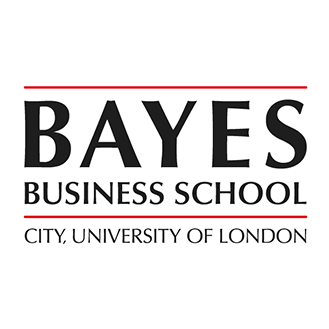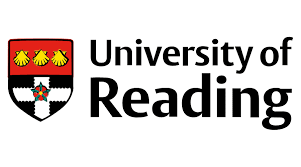Investment Management Course: Unlock Your Financial Future Abroad
Welcome to the world of Investment Management, a dynamic field that equips you with the skills to navigate global financial markets, make informed investment decisions, and drive economic growth. For Indian students aspiring to study abroad, this course offers unparalleled opportunities to gain expertise in portfolio management, risk assessment, and sustainable investing. Whether you're aiming to work in top investment banks, hedge funds, or advisory firms, pursuing Investment Management abroad can transform your career trajectory. With a blend of theoretical knowledge and practical training, this program prepares you for the complexities of international finance while fostering a global mindset essential in today's interconnected economy.
Studying Investment Management overseas exposes you to cutting-edge financial tools, diverse market perspectives, and networking opportunities that are often limited in domestic programs. Indian students, in particular, benefit from this as it bridges the gap between emerging markets like India and developed economies, enhancing your employability back home or abroad.
Why Choose Investment Management for Study Abroad?
For Indian students, studying Investment Management abroad is more than just an academic pursuit—it's a strategic step toward financial independence and global leadership. Here's why this course stands out:
- Global Exposure: Learn from diverse case studies, including how investments in emerging markets like India integrate with global portfolios.
- High Demand: The finance sector worldwide, especially in the US, UK, and Australia, seeks skilled professionals to manage trillions in assets.
- Scholarships and Funding: Many universities offer merit-based scholarships for international students from India, covering up to 50% of tuition fees.
- Post-Study Work Visas: Countries like Canada and Australia provide pathways to permanent residency after graduation, allowing you to gain real-world experience.
- Cultural and Professional Growth: Immerse yourself in multicultural environments that build soft skills like cross-cultural communication, vital for finance roles.
With India's economy booming and its financial markets expanding, graduates of this course are well-positioned to contribute to initiatives like the National Investment and Infrastructure Fund or work with multinational firms in Mumbai, Delhi, or Bangalore upon return.
Course Overview
The Investment Management course typically spans 1-2 years at the master's level (MSc or MBA in Investment Management) and focuses on the principles and practices of managing investments for individuals, institutions, and corporations. Delivered through a mix of lectures, seminars, simulations, and internships, the program emphasizes ethical decision-making, quantitative analysis, and regulatory compliance.
Core themes include asset allocation, performance measurement, and alternative investments like private equity and real estate. You'll use industry-standard software such as Bloomberg terminals and MATLAB to analyze real-time data. For Indian students, electives often cover topics like foreign exchange risks in BRICS nations or sustainable investing in developing economies, making the curriculum highly relevant.
Assessment methods vary but commonly include exams (40%), coursework and projects (30%), and a dissertation or capstone project (30%). Many programs require a placement or internship in the final semester, providing hands-on experience with global firms.
Key Learning Outcomes
By the end of the course, you'll be able to:
- Evaluate investment opportunities using advanced financial models and risk management techniques.
- Construct and optimize diversified portfolios tailored to client needs and market conditions.
- Understand regulatory frameworks, including those from the SEC (US), FCA (UK), and SEBI (India) for cross-border compliance.
- Apply ethical principles to investment decisions, focusing on ESG (Environmental, Social, Governance) factors increasingly important in global finance.
- Analyze economic indicators and their impact on asset classes, from equities to derivatives.
- Develop strategies for wealth management, including retirement planning and hedge fund operations.
These outcomes ensure you're not just theoretically sound but practically ready to excel in competitive job markets.
Detailed Curriculum
The curriculum is structured progressively, starting with foundational concepts and advancing to specialized topics. Below is a sample breakdown for a typical 2-year MSc program:
| Semester | Core Modules | Electives | Practical Components |
|---|---|---|---|
| Semester 1: Foundations |
|
Introduction to Derivatives | Market Simulation Workshops |
| Semester 2: Intermediate |
|
Behavioral Finance; Emerging Markets Investing | Case Studies on Global Crises (e.g., 2008 Financial Crisis) |
| Semester 3: Advanced |
|
Sustainable and Impact Investing; FinTech in Investments | Guest Lectures from Industry Experts |
| Semester 4: Capstone | Dissertation on Investment Strategies | Elective based on specialization (e.g., Real Estate Finance) | Internship or Industry Project (3-6 months) |
This structure allows flexibility to specialize in areas like sustainable finance, which aligns with India's push towards green investments. Indian students often appreciate modules on rupee-dollar dynamics and FDI regulations.
Eligibility Criteria for Indian Students
To enroll in an Investment Management program abroad, you'll need to meet these standard requirements:
- Academic Qualifications: A bachelor's degree in finance, economics, commerce, or a related field with at least 60% aggregate (or equivalent GPA). For Indian applicants, degrees from recognized universities like IITs, IIMs, or Delhi University are preferred.
- Entrance Exams: GMAT or GRE scores (typically 600+ for GMAT). Some programs accept CAT scores from Indian exams.
- English Proficiency: IELTS (6.5+ overall) or TOEFL (90+). Exemptions apply if your undergraduate degree was in English.
- Work Experience: 1-2 years preferred for MBA tracks, though not mandatory for MSc programs.
- Documents: Statement of Purpose (SOP) highlighting your interest in investments, Letters of Recommendation (2-3), CV, and transcripts. Emphasize any experience with stock markets or banking in India.
- Visa and Funding Proof: Valid student visa and evidence of financial support (e.g., bank statements or scholarships).
Many universities provide pre-application guidance for Indian students, including webinars on SOP writing tailored to finance aspirations.
Career Opportunities After Graduation
Investment Management graduates enjoy lucrative and diverse career paths. With the global asset management industry projected to reach $145 trillion by 2025, opportunities abound. For Indian students, this means roles that leverage your understanding of both Eastern and Western markets.
- Portfolio Manager: Oversee investment funds; average salary: $100,000-$150,000 USD annually.
- Financial Analyst: Analyze market trends; starting salary: $70,000+ USD, with quick progression in firms like Goldman Sachs.
- Risk Manager: Mitigate financial risks; high demand in banking hubs like London or New York.
- Wealth Advisor: Serve high-net-worth clients; opportunities in Singapore or Dubai for Indian diaspora.
- Investment Banker: Handle mergers and acquisitions; salaries exceed $120,000 USD with bonuses.
- Back in India: Roles at HDFC, ICICI, or SEBI; average salary: ₹15-30 lakhs per annum, plus global credentials boost promotions.
Top recruiters include JPMorgan Chase, BlackRock, Vanguard, and Indian giants like Kotak Mahindra. Many programs boast 95%+ placement rates, with alumni networks strong in Asia-Pacific regions.
Top Universities Offering Investment Management
Choose from world-renowned institutions that welcome Indian students with tailored support:
| University | Country | Program Duration | Tuition (Approx. per Year, USD) | Key Highlights for Indians |
|---|---|---|---|---|
| London School of Economics (LSE) | UK | 1 year (MSc) | 35,000 | Strong focus on global finance; scholarships up to £10,000 for Indians |
| University of Pennsylvania (Wharton) | USA | 2 years (MBA) | 80,000 | Extensive alumni in India; OPT visa for 3 years work experience |
| University of Melbourne | Australia | 1.5 years (Master) | 45,000 | Post-study work visa up to 4 years; India-specific electives |
| HEC Paris | France | 1 year (MSc) | 30,000 | Low-cost living; partnerships with Indian firms like Tata |
| University of Toronto (Rotman) | Canada | 2 years (MBA) | 60,000 | Pathway to PR; diverse Indian student community |
How to Apply: Step-by-Step Guide for Indian Students
Applying for Investment Management abroad is straightforward with proper planning. Follow these steps:
- Research Programs: Use our website to shortlist universities based on rankings, fees, and scholarships. Aim for applications 6-12 months before intake (September/January).
- Prepare Documents: Draft a compelling SOP linking your Indian background (e.g., interest in NSE/BSE markets) to global ambitions. Secure LORs from professors or employers.
- Take Exams: Schedule GMAT/GRE and IELTS early. Practice with resources like official guides or coaching in India.
- Apply Online: Submit via university portals or centralized systems like UCAS (UK). Pay application fees ($50-200).
- Secure Funding: Apply for scholarships (e.g., Chevening for UK, Fulbright for US) or education loans from Indian banks like SBI.
- Visa Application: Once accepted, apply for student visa with CAS/offer letter. Attend biometrics in India.
- Pre-Departure Prep: Join orientation sessions for cultural adaptation and finance-specific webinars.
Our study abroad experts offer free consultations to guide you through every step, ensuring a smooth transition to your dream program.
Embark on your journey in Investment Management today—it's not just a course; it's the key to mastering global finance and securing a prosperous future. For Indian students, this is your gateway to influencing the world's economy while honoring your roots.








